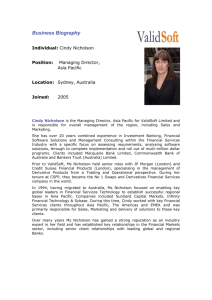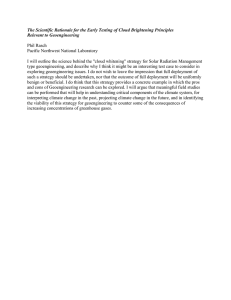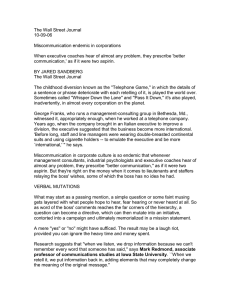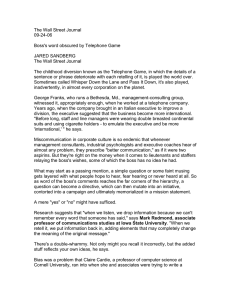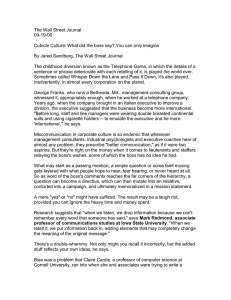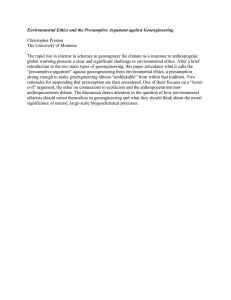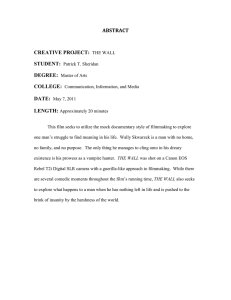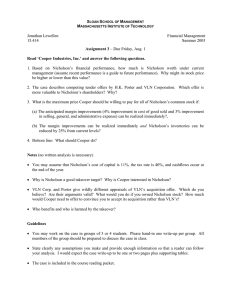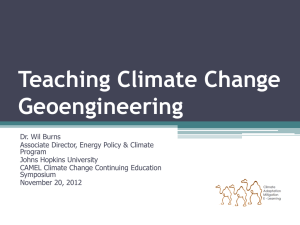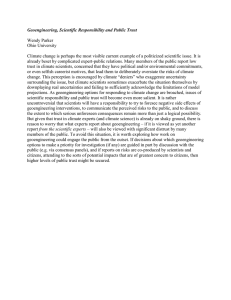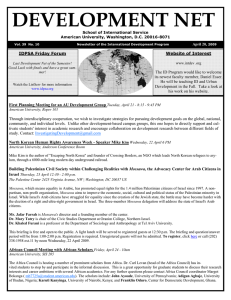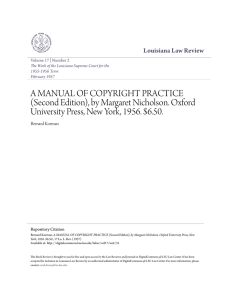AU 2030: Environmental Studies
advertisement
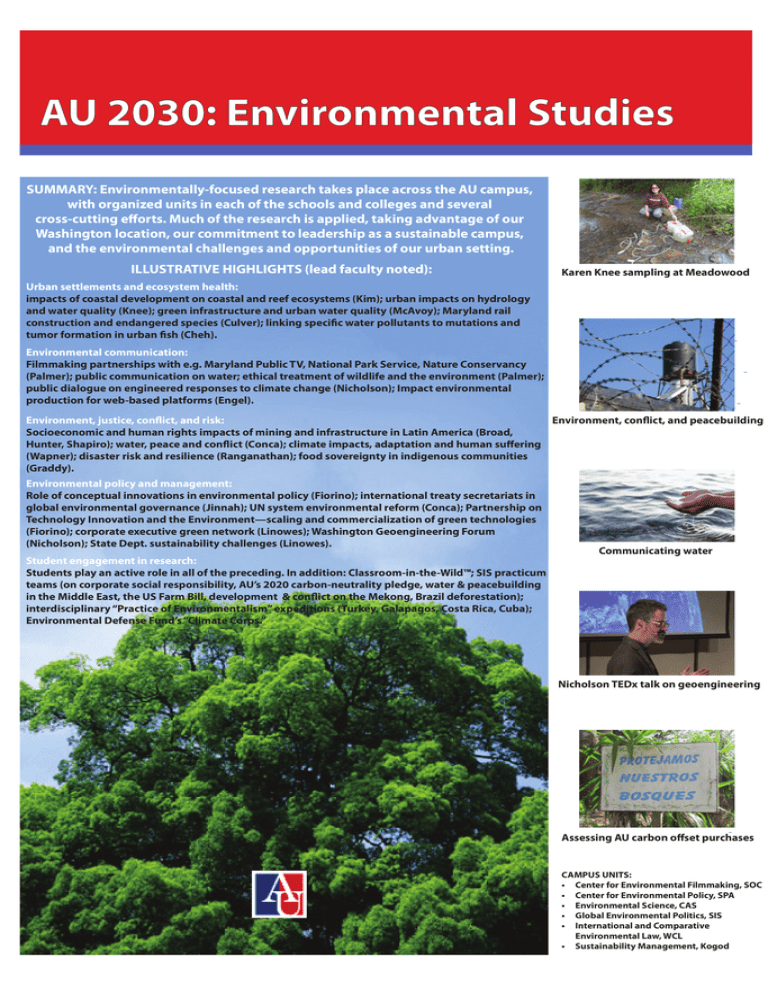
AU 2030: Environmental Studies SUMMARY: Environmentally-focused research takes place across the AU campus, with organized units in each of the schools and colleges and several cross-cutting efforts. Much of the research is applied, taking advantage of our Washington location, our commitment to leadership as a sustainable campus, and the environmental challenges and opportunities of our urban setting. ILLUSTRATIVE HIGHLIGHTS (lead faculty noted): Karen Knee sampling at Meadowood Urban settlements and ecosystem health: impacts of coastal development on coastal and reef ecosystems (Kim); urban impacts on hydrology and water quality (Knee); green infrastructure and urban water quality (McAvoy); Maryland rail construction and endangered species (Culver); linking specific water pollutants to mutations and tumor formation in urban fish (Cheh). - Environmental communication: Filmmaking partnerships with e.g. Maryland Public TV, National Park Service, Nature Conservancy (Palmer); public communication on water; ethical treatment of wildlife and the environment (Palmer); public dialogue on engineered responses to climate change (Nicholson); Impact environmental production for web-based platforms (Engel). - Environment, justice, conflict, and risk: Environment, conflict, and peacebuilding Socioeconomic and human rights impacts of mining and infrastructure in Latin America (Broad, Hunter, Shapiro); water, peace and conflict (Conca); climate impacts, adaptation and human suffering (Wapner); disaster risk and resilience (Ranganathan); food sovereignty in indigenous communities (Graddy). Environmental policy and management: Role of conceptual innovations in environmental policy (Fiorino); international treaty secretariats in global environmental governance (Jinnah); UN system environmental reform (Conca); Partnership on Technology Innovation and the Environment—scaling and commercialization of green technologies (Fiorino); corporate executive green network (Linowes); Washington Geoengineering Forum (Nicholson); State Dept. sustainability challenges (Linowes). Student engagement in research: Students play an active role in all of the preceding. In addition: Classroom-in-the-Wild™; SIS practicum teams (on corporate social responsibility, AU’s 2020 carbon-neutrality pledge, water & peacebuilding in the Middle East, the US Farm Bill, development & conflict on the Mekong, Brazil deforestation); interdisciplinary “Practice of Environmentalism” expeditions (Turkey, Galapagos, Costa Rica, Cuba); Environmental Defense Fund’s “Climate Corps.” Communicating water Nicholson TEDx talk on geoengineering - Assessing AU carbon offset purchases CAMPUS UNITS: • Center for Environmental Filmmaking, SOC • Center for Environmental Policy, SPA • Environmental Science, CAS • Global Environmental Politics, SIS • International and Comparative Environmental Law, WCL • Sustainability Management, Kogod
